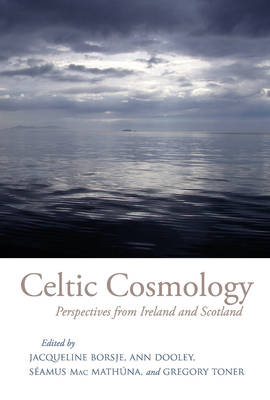
- Retrait gratuit dans votre magasin Club
- 7.000.000 titres dans notre catalogue
- Payer en toute sécurité
- Toujours un magasin près de chez vous
- Retrait gratuit dans votre magasin Club
- 7.000.0000 titres dans notre catalogue
- Payer en toute sécurité
- Toujours un magasin près de chez vous
Description
From the deep sea to the waters above the sky, from the world beneath our feet to the promised land across the ocean - this volume represents a search for traces of cosmologies in Celtic sources, especially those of Ireland and Scotland. These cosmological traces are investigated for their Indo-European and Semitic parallels and influences. The broad world orderings - Celtic tripartition (earth, water and sky) and Christian bipartition (this world and the next) - are explored, and the cosmological meaning of specific demarcations in the landscape is analyzed. The world was mapped with words, as signposts for contemporary and future generations. These written "maps" are not only geographical, they also constitute ethical and mythological guidelines. Through storytelling, landscape and social space are processed in a framework of cosmic good and evil. In a Celtic mental world roads, rivers, mountains and hills are vital markers. Hills and caves were used in rituals and were seen as entrances to a subterranean otherworld where supernatural beings dwell and knowledge of the cosmos was believed to reside with these supernatural or subterranean beings. This knowledge is connected with protection and violation of the landscape and waters, and is often associated with the king, truth and justice. In the socialized landscape features of periphery and centre are closely related to kingship: thus, looming tragedy can be deduced from the route that a mythical king takes; royal capitals are outlined in landscape and architecture as ritual centres. The naming of significant places is a human act of creating order. In the Celtic literary tradition of explanatory and etymologizing stories, place-names serve as signifiers and warning signs (taboos) and some Celtic narratives on naming places appear to function also as performances of atonement for disruptions of the cosmic order.
Spécifications
Parties prenantes
- Auteur(s) :
- Editeur:
Contenu
- Nombre de pages :
- 324
- Langue:
- Anglais
- Collection :
- Tome:
- n° 26
Caractéristiques
- EAN:
- 9780888448262
- Date de parution :
- 01-04-14
- Format:
- Livre relié
- Format numérique:
- Genaaid
- Dimensions :
- 161 mm x 241 mm
- Poids :
- 666 g

Les avis
Nous publions uniquement les avis qui respectent les conditions requises. Consultez nos conditions pour les avis.






